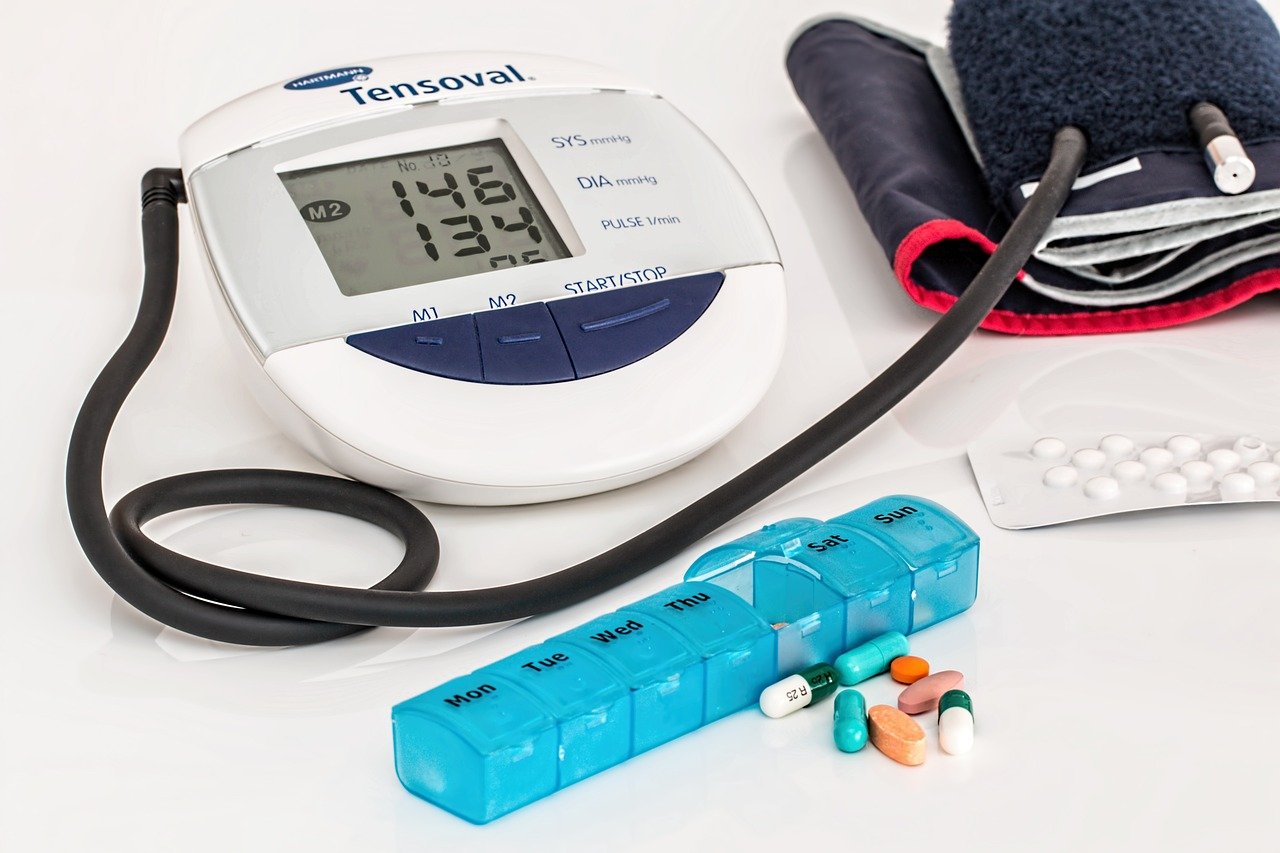Why Does My Stomach Hurt? | Common Causes, Symptoms, and Remedies [2024]
![Why Does My Stomach Hurt? | Common Causes, Symptoms, and Remedies [2024]](https://prismtechie.com/wp-content/uploads/2024/07/pexels-sora-shimazaki-5938358-scaled.jpg)
Experiencing stomach pain can be distressing and uncomfortable, often leaving us searching for answers. Stomach pain, also known as abdominal pain, can be caused by a variety of factors ranging from benign to serious. In this comprehensive guide, we will delve into the common causes of stomach pain, their symptoms, and potential remedies to help you understand and manage this discomfort effectively.
Common Causes of Stomach Pain
Stomach pain is a widespread issue that can affect anyone at any time. Here, we explore the most common causes of stomach pain, providing detailed insights into each condition.
1. Indigestion (Dyspepsia)
Indigestion, or dyspepsia, is one of the most frequent causes of stomach pain. It occurs when the stomach lining is irritated by stomach acid, leading to discomfort. Common symptoms include bloating, nausea, and a burning sensation in the upper abdomen. Factors contributing to indigestion include:
- Overeating or eating too quickly
- Consuming fatty, greasy, or spicy foods
- Drinking too much caffeine or alcohol
- Stress and anxiety
2. Gas and Bloating
Gas and bloating result from the accumulation of gas in the digestive tract. This can cause sharp, cramp-like pains in the stomach. Gas can be caused by:
- Swallowing air while eating or drinking
- Consuming carbonated beverages
- Eating certain foods that produce gas, such as beans, lentils, and broccoli
- Poor digestion or absorption of carbohydrates
3. Gastroesophageal Reflux Disease (GERD)
Common symptoms include heartburn, chest pain, and a sour taste in the mouth. Factors that increase the risk of GERD include:
- Obesity
- Smoking
- Pregnancy
- Certain medications, such as aspirin or ibuprofen
4. Gastritis
Gastritis involves inflammation of the stomach lining, which can lead to burning pain in the upper abdomen.
- Excessive alcohol consumption
- Prolonged use of NSAIDs (nonsteroidal anti-inflammatory drugs)
- Infection with Helicobacter pylori bacteria
- Stress
5. Peptic Ulcers
They are usually caused by an H. pylori infection or long-term use of NSAIDs. Symptoms include:
- Burning stomach pain
- Bloating and belching
- Intolerance to fatty foods
- Heartburn
6. Irritable Bowel Syndrome (IBS)
The exact cause is unknown, but triggers often include:
- Stress
- Certain foods, such as dairy products, caffeine, and artificial sweeteners
- Hormonal changes, especially in women
7. Food Poisoning
Bacteria, viruses, and parasites are common culprits. Symptoms of food poisoning include:
- Severe stomach pain and cramps
- Nausea and vomiting
- Diarrhea
- Fever
8. Constipation
Constipation happens when bowel movements become less frequent and stools become difficult to pass. It can cause significant discomfort and abdominal pain. Common causes include:
- A diet low in fiber
- Dehydration
- Lack of physical activity
- Certain medications
9. Appendicitis
It causes sudden, sharp pain that usually begins around the navel and then moves to the lower right abdomen.
10. Kidney Stones
They can cause severe pain that radiates from the side and back to the lower abdomen and groin. Other symptoms include:
- Nausea and vomiting
- Painful urination
- Blood in the urine
11. Gallstones
Gallstones are hardened deposits of digestive fluid that can form in the gallbladder. They can block the ducts leading from the gallbladder to the intestines, causing intense pain in the upper right abdomen. Symptoms may also include:
- Nausea and vomiting
- Jaundice (yellowing of the skin and eyes)
- Dark urine and light-colored stools
12. Pancreatitis
It can be acute or chronic, causing severe abdominal pain that radiates to the back, along with symptoms like:
- Fever
- Nausea and vomiting
- Rapid pulse
13. Lactose Intolerance
Lactose intolerance occurs when the body cannot digest lactose, a sugar found in dairy products. This leads to symptoms such as:
- Bloating
- Diarrhea
- Gas
- Stomach cramps
14. Celiac Disease
Symptoms include:
- Abdominal pain and bloating
- Diarrhea or constipation
- Fatigue
- Weight loss
15. Inflammatory Bowel Disease (IBD)
IBD includes conditions such as Crohn’s disease and ulcerative colitis, which cause chronic inflammation of the digestive tract. Symptoms vary but often include:
- Severe abdominal pain
- Diarrhea, often with blood
- Fatigue
- Weight loss
When to Seek Medical Help
It is imperative that you get medical help if you encounter:
- Severe and persistent pain
- Pain accompanied by fever
- Bloody or black stools
- Vomiting blood
- Unexplained weight loss
- Difficulty swallowing
- Persistent nausea or vomiting
When to Seek Medical Attention
While many instances of stomach pain resolve on their own, certain symptoms can indicate serious health issues that require immediate medical attention. Understanding when to seek professional help is crucial for your health and safety. Here are key indicators that warrant a visit to a healthcare provider.
Severe and Persistent Pain
Experiencing severe and persistent stomach pain is a clear sign that you need to consult a healthcare professional. This type of pain is often intense, debilitating, and does not improve with over-the-counter medications or home remedies. Conditions that can cause severe pain include:
- Appendicitis
- Pancreatitis
- Perforated ulcer
- Kidney stones
Pain Accompanied by Fever
Stomach pain coupled with a fever can indicate an underlying infection or inflammatory condition. Infections such as appendicitis, diverticulitis, or pelvic inflammatory disease often present with both abdominal pain and fever. Prompt medical evaluation is essential to prevent complications.
Bloody or Black Stools
The presence of blood in the stool or stools that are black and tarry in appearance can signal gastrointestinal bleeding.
- Peptic ulcers
- Gastritis
- Colon cancer
- Diverticular disease
Any signs of blood in your stool require immediate medical attention.
Vomiting Blood
Vomiting blood (hematemesis) is a serious symptom that indicates bleeding in the upper gastrointestinal tract. This can be caused by:
- Peptic ulcers
- Esophageal varices
- Gastritis
- Mallory-Weiss tear
If you experience this symptom, seek emergency medical care immediately.
Unexplained Weight Loss
Unintended weight loss in conjunction with stomach pain can be a warning sign of several serious conditions, including:
- Cancer (stomach, pancreatic, or colorectal)
- Inflammatory bowel disease (IBD)
- Chronic infections
Consult a healthcare provider if you notice significant weight loss without trying.
Difficulty Swallowing
Experiencing difficulty swallowing (dysphagia) along with stomach pain can be a sign of esophageal disorders, such as:
- GERD (Gastroesophageal Reflux Disease)
- Esophageal stricture
- Esophageal cancer
- Achalasia
Persistent Nausea or Vomiting
Persistent nausea and vomiting lasting more than a few days can indicate various conditions, including:
- Gastritis
- Peptic ulcer disease
- Gastroenteritis
- Pancreatitis
Prolonged vomiting can lead to dehydration and electrolyte imbalances, making it important to get medical help.
Abdominal Swelling and Tenderness
Swelling and tenderness in the abdomen, especially if accompanied by severe pain, can indicate conditions like:
- Ascites (fluid accumulation in the abdomen)
- Intestinal obstruction
- Hernia
- Abdominal aortic aneurysm
Immediate medical attention is necessary to diagnose and treat the underlying cause.
Jaundice
Jaundice (yellowing of the skin and eyes) along with stomach pain can signal liver or gallbladder issues, such as:
- Hepatitis
- Cirrhosis
- Gallstones
- Pancreatic cancer
Jaundice requires prompt evaluation to determine the cause and initiate appropriate treatment.
Chest Pain
Chest pain that accompanies stomach pain can sometimes indicate a heart condition, such as a heart attack, especially if the pain radiates to the arm, neck, or jaw. This is a medical emergency, and immediate attention is necessary.
Summary
Knowing when to seek medical attention for stomach pain is crucial for ensuring timely and effective treatment. Here are the key symptoms that require professional evaluation:
- Severe and persistent pain
- Pain accompanied by fever
- Bloody or black stools
- Vomiting blood
- Unexplained weight loss
- Difficulty swallowing
- Persistent nausea or vomiting
- Abdominal swelling and tenderness
- Jaundice
- Chest pain
If you experience any of these symptoms, do not hesitate to consult a healthcare provider. Prompt medical attention can prevent complications and improve outcomes for serious underlying conditions. Water: Aim for at least 8 glasses a day.
Home Remedies for Stomach Pain
Stomach pain, while often uncomfortable, can frequently be managed effectively at home. Many home remedies can alleviate symptoms, promote healing, and provide relief from various types of stomach pain. Below, we discuss several tried-and-true methods to help you manage and relieve stomach pain naturally.
1. Hydration
Importance of Staying Hydrated
Adequate hydration is crucial for maintaining proper digestive function. Drinking enough fluids helps to keep the digestive system running smoothly and can alleviate symptoms of dehydration-related stomach pain.
Recommended Beverages
- Herbal Teas: Ginger, peppermint, and chamomile teas are particularly beneficial for soothing the stomach.
- Clear Broths: These can be gentle on the stomach and provide necessary hydration.
2. Ginger
Benefits of Ginger
Ginger has natural anti-inflammatory and antioxidant properties, making it an effective remedy for stomach pain and indigestion.
How to Use Ginger
- Ginger Supplements: Available in capsule form for convenience.
- Fresh Ginger: Chew a small piece of fresh ginger or add it to meals.
3. Peppermint
Benefits of Peppermint
Peppermint has a soothing effect on the digestive system, helping to relieve gas, bloating, and stomach cramps.
How to Use Peppermint
- Peppermint Oil: Add a few drops of peppermint oil to a glass of water or inhale the aroma.
4. Apple Cider Vinegar
Benefits of Apple Cider Vinegar
Apple cider vinegar (ACV) can help balance stomach acid levels and improve digestion.
How to Use Apple Cider Vinegar
- Diluted ACV: Mix one tablespoon of ACV with a glass of warm water and drink before meals.
- ACV Tonic: Combine ACV with honey and warm water for a soothing drink.
5. Heat Therapy
Benefits of Heat Therapy
Applying heat can help relax the muscles of the abdomen, reduce cramps, and provide pain relief.
How to Use Heat Therapy
- Heating Pad: Place a heating pad on the stomach for 15-20 minutes.
- Warm Compress: Use a warm towel or cloth to apply heat to the affected area.
6. Dietary Adjustments
Benefits of Dietary Adjustments
Modifying your diet can prevent and alleviate stomach pain by avoiding trigger foods and promoting digestive health.
Recommended Dietary Changes
- Eat Smaller, Frequent Meals: Helps prevent overeating and reduces pressure on the digestive system.
- Avoid Trigger Foods: Identify and avoid foods that cause discomfort, such as fatty, spicy, or acidic foods.
- Increase Fiber Intake: Incorporate more fruits, vegetables, and whole grains to promote regular bowel movements.
7. Probiotics
Benefits of Probiotics
Probiotics are beneficial bacteria that support gut health and can help alleviate symptoms of indigestion and IBS.
How to Use Probiotics
- Probiotic Supplements: Available in capsule form.
8. Baking Soda
Benefits of Baking Soda
Baking soda can neutralize stomach acid and provide quick relief from indigestion and heartburn.
How to Use Baking Soda
- Baking Soda Solution: Mix a teaspoon of baking soda with a glass of water and drink.
9. Fennel Seeds
Benefits of Fennel Seeds
Fennel seeds have antispasmodic properties that help relax the muscles of the gastrointestinal tract and alleviate gas and bloating.
How to Use Fennel Seeds
- Fennel Tea: Steep a teaspoon of fennel seeds in hot water and drink.
- Chewing Fennel Seeds: Chew a few fennel seeds after meals.
10. Rest and Relaxation
Benefits of Rest
Resting can help your body heal and reduce stress, which is a common trigger for stomach pain.
How to Incorporate Rest and Relaxation
- Lie Down: Rest in a comfortable position, ideally on your back with a pillow under your knees.
- Practice Relaxation Techniques: Techniques such as deep breathing, meditation, or yoga can reduce stress and alleviate stomach pain.
Preventive Measures
Healthy Habits for Prevention
Incorporating certain habits into your daily routine can help prevent stomach pain.
Tips for Prevention
- Exercise Regularly: Physical activity promotes healthy digestion.
- Manage Stress: Practice stress-relief techniques regularly.
- Avoid Overeating: Eat smaller, more frequent meals.
Preventive Measures
Stomach pain can be disruptive and uncomfortable, but many instances can be prevented through simple lifestyle and dietary adjustments. By adopting healthy habits and being mindful of your body’s signals, you can significantly reduce the likelihood of experiencing stomach pain. Here are some effective preventive measures to help maintain a healthy digestive system.
1. Maintain a Balanced Diet
Importance of a Balanced Diet
Eating a balanced diet is crucial for digestive health. A diet rich in essential nutrients supports overall body functions and can prevent various digestive issues that cause stomach pain.
Dietary Recommendations
- Eat a lot of fruits, vegetables, whole grains, and legumes as well as foods high in fibre. Constipation is avoided and digestion is aided by fibre.
- Lean Proteins: Choose lean meats, fish, beans, and legumes.
- Nuts, avocados, and olive oil are good sources of healthy fats that you should include in your diet. Limit saturated fats and stay away from trans fats.
- Hydration: Drink plenty of water throughout the day to keep your digestive system functioning smoothly.
2. Stay Hydrated
Benefits of Staying Hydrated
Proper hydration is essential for digestion and overall health. Water helps dissolve fats and soluble fiber, allowing these substances to pass through the digestive system more easily.
Hydration Tips
- Regularly Consume Water: Try to have eight glasses or more each day.
- Limit Sugary and Carbonated Drinks: These can cause gas and bloating.
- Herbal Teas: Herbal teas like ginger and peppermint can aid digestion.
3. Regular Physical Activity
Importance of Exercise
Regular physical activity promotes healthy digestion by stimulating intestinal contractions and helping food move through the digestive system.
Exercise Recommendations
- Daily Exercise: Aim for at least 30 minutes of moderate exercise, such as walking, cycling, or swimming.
- Post-Meal Activity: A short walk after meals can aid digestion.
4. Manage Stress
Impact of Stress on Digestion
Stress can negatively affect your digestive system, leading to conditions like IBS and indigestion. Managing stress effectively is crucial for maintaining digestive health.
Stress-Management Techniques
- Techniques for Relaxation: Do yoga, meditation, or deep breathing.
- Adequate Sleep: Ensure you get 7-9 hours of sleep per night to help your body manage stress.
- Hobbies and Leisure Activities: Engage in activities you enjoy to reduce stress.
5. Eat Mindfully
Benefits of Mindful Eating
EaMindful eating can aid in healthier digestion and assist avoid overindulging. Paying attention to what and how you eat can make a significant difference.
Mindful Eating Tips
- Eat Slowly: Give your food enough time to be completely chewed.
- Smaller, Frequent Meals: Opt for smaller, more frequent meals instead of large, heavy ones.
- Avoid Distractions: Focus on your meal without distractions like TV or smartphones.
6. Avoid Trigger Foods
Identifying and Avoiding Triggers
Certain foods can trigger digestive discomfort and stomach pain. Identifying and avoiding these foods can help prevent issues.
Common Trigger Foods
- Spicy Foods: Can cause heartburn and indigestion.
- Fatty Foods: High-fat foods can slow digestion and cause discomfort.
- Dairy Products: For those who are lactose intolerant, dairy can cause bloating and pain.
- Caffeine and Alcohol: These can irritate the stomach lining and lead to pain.
7. Don’t Overeat
Dangers of Overeating
Overeating can cause indigestion, bloating, and stomach pain.
Portion Control Tips
- Use Smaller Plates: Helps with portion control.
- Regular Eating Schedule: Stick to a regular eating schedule to avoid excessive hunger and overeating.
8. Avoid Smoking and Limit Alcohol
Impact on Digestion
Both smoking and binge drinking too much alcohol can aggravate the digestive tract and cause a range of stomach problems.
Tips for Avoidance
- Quit Smoking: Seek professional help if needed to quit smoking.
- Moderate Alcohol Intake: Limit alcohol consumption to moderate levels, if at all.
9. Probiotics for Gut Health
Benefits of Probiotics
Probiotics are good bacteria that maintain a balanced flora in the gut. They may aid in the avoidance of digestive problems such as diarrhea, gas, and bloating.
Sources of Probiotics
- Yogurt and Kefir: These are rich sources of probiotics.
- Fermented Foods: Sauerkraut, kimchi, and miso are excellent sources.
- Probiotic Supplements: Available in capsule form for convenience.
10. Regular Medical Check-Ups
Importance of Monitoring Health
Regular medical check-ups can help detect any underlying issues early and prevent serious conditions that could cause stomach pain.
Check-Up Recommendations
- Annual Physical Exam: Helps keep track of your overall health.
- Screening Tests: Based on your age and risk factors, undergo recommended screening tests like colonoscopies.
Conclusion
Stomach pain can stem from a variety of causes, each with its own set of symptoms and remedies. By understanding the common causes and implementing appropriate preventive measures and home remedies, you can effectively manage and alleviate stomach pain. However, it is crucial to seek medical attention for severe or persistent symptoms to ensure proper diagnosis and treatment. Prioritizing your digestive health can significantly enhance your overall well-being and quality of life.




